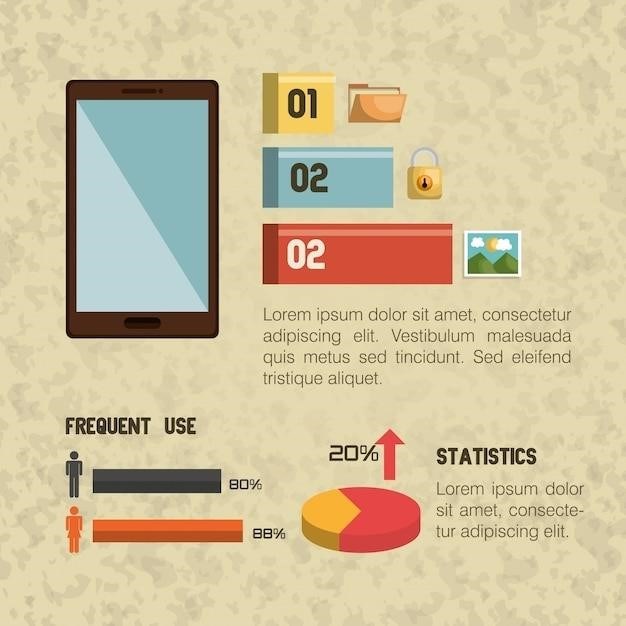Schedule G (Form 990) Overview
Schedule G supplements Form 990, detailing fundraising and gaming activities. Nonprofits exceeding specific financial thresholds must complete and attach it. It ensures IRS compliance and transparency with donors.
Who Must File Schedule G?
Form 990 filers answering “yes” to Part IV, lines 17, 18, or 19 (Checklist of Required Schedules) are required to file Schedule G. This indicates expenses exceeding $15,000 for professional fundraising services, fundraising events, or gaming activities. Similarly, Form 990-EZ filers must file Schedule G if they report over $15,000 in fundraising event contributions and gross income on lines 1 and 6b. The specific criteria for Schedule G filing are clearly outlined in the official IRS instructions. Failure to file when required can lead to penalties. Understanding these requirements is crucial for maintaining compliance. Tax-exempt organizations engaging in substantial fundraising or gaming activities should carefully review the guidelines to determine their filing obligation. Accurate reporting is vital for transparency and maintaining public trust.
Form 990 vs. Form 990-EZ Requirements
Schedule G requirements differ slightly depending on whether an organization files Form 990 or Form 990-EZ. For Form 990 filers, Schedule G is required if the organization answers “yes” to specific questions in Part IV regarding fundraising or gaming activities exceeding certain thresholds. These thresholds often involve expenses for professional fundraising services, gross receipts from fundraising events, or income from gaming activities. In contrast, Form 990-EZ filers trigger a Schedule G requirement based on gross income from fundraising events surpassing a specified amount, typically $15,000. While both forms necessitate Schedule G under certain conditions, the triggering criteria vary, emphasizing the importance of consulting the relevant IRS instructions for the specific form being filed to ensure accurate compliance. Careful review of these instructions is essential for both Form 990 and Form 990-EZ filers to correctly determine their filing obligations.
Part I⁚ Professional Fundraising Services
This section of Schedule G details expenses exceeding $15,000 paid to professional fundraising firms. Report each firm’s name, services rendered, and expenses incurred.
Reporting Requirements for Part I
Part I of Schedule G (Form 990) demands detailed reporting of payments to professional fundraising services. If your organization’s expenses for such services surpass $15,000, you are required to complete this section. For each entity or firm engaged, you must provide their name and complete address. A precise description of the services rendered is crucial, ensuring clarity and accuracy in your reporting. Furthermore, the total amount paid to each entity must be meticulously documented. Failure to accurately report these details can lead to complications during IRS review, potentially resulting in delays or requests for further clarification. Therefore, maintaining comprehensive records throughout the year is advisable for streamlined completion of Schedule G. This detailed record-keeping not only aids in accurate reporting but also helps in demonstrating compliance and transparency to both the IRS and your organization’s stakeholders.
Information Needed for Part I Completion
To accurately complete Part I of Schedule G, gather comprehensive data on all professional fundraising services utilized. This includes the full legal name and address of each entity or firm contracted. Detailed descriptions of services provided are essential; be specific about the nature of their work (e.g., direct mail campaigns, telemarketing, online fundraising). Crucially, you’ll need the total amount paid to each service provider during the tax year. Maintain supporting documentation such as contracts, invoices, and payment records. These documents serve as crucial evidence of expenses and should be readily available for IRS review. Accurate and organized record-keeping significantly simplifies the completion of Schedule G and minimizes the risk of errors or omissions. Remember, the accuracy of this information directly impacts the reliability of your organization’s Form 990 filing.
Part II⁚ Fundraising Events
This section of Schedule G reports fundraising event income and expenses. It’s crucial for organizations exceeding the $15,000 gross receipts threshold.
Gross Receipts Threshold for Part II
Part II of Schedule G (Form 990), concerning fundraising events, requires completion only if your organization’s gross receipts from fundraising events surpass $15,000 during the tax year. This threshold applies irrespective of whether you file Form 990 or the simpler Form 990-EZ. Failing to meet this threshold exempts your organization from completing Part II. However, exceeding this amount necessitates a detailed accounting of all fundraising event income. Accurate record-keeping is paramount to ensure compliance. Carefully track all income generated from events, including ticket sales, donations, and sponsorships. Maintaining organized financial records simplifies the completion of Schedule G and minimizes the risk of errors. Remember, accurate reporting fosters transparency and builds trust with donors and the IRS. The $15,000 threshold is not arbitrary; it signifies a level of fundraising activity requiring more detailed reporting to the IRS. Properly completing this section demonstrates your organization’s commitment to financial accountability and responsible stewardship of resources.
Calculating Net Income in Part II
Calculating net income for Part II of Schedule G involves subtracting total direct expenses from gross income. Gross income includes only the non-deductible portion of each ticket sale (representing the exchange transaction), excluding any contribution revenue. Contribution revenue is reported separately in Part VIII of Form 990. Direct expenses are those directly attributable to the fundraising event, such as venue rental, entertainment costs, and marketing materials. Indirect expenses, like administrative overhead, are not included in this calculation. Meticulously track all event-related costs to ensure accurate expense reporting. Carefully review each expense to ensure its direct association with the fundraising event; Any ambiguity should be resolved conservatively, erring on the side of excluding questionable expenses from the direct expense summary. The resulting net income figure represents the profit generated by the fundraising event after accounting for directly associated costs. This calculation is crucial for providing a clear picture of the event’s financial success and its contribution to the organization’s overall financial health. Accurate calculation is essential for IRS compliance.

Part III⁚ Gaming Activities
This section reports income from gaming activities. Specific details on gross receipts and expenses are required for compliance.
Income Reporting for Gaming Activities
Accurate reporting of all income generated from gaming activities is crucial for completing Schedule G correctly. This includes all forms of revenue, such as proceeds from raffles, bingo nights, casino events, or any other similar activities conducted by the non-profit organization. It’s essential to distinguish between gross receipts (total income before expenses) and net income (income after deducting expenses). Detailed records of all transactions are necessary to support the reported figures, ensuring accuracy and facilitating a smooth audit process. Failure to report income accurately can lead to penalties and jeopardize the non-profit’s tax-exempt status. Therefore, meticulous record-keeping practices are paramount. Furthermore, the IRS expects a clear breakdown of income sources and the methods used to generate this revenue. This detailed approach ensures transparent and reliable financial reporting, maintaining the integrity of the non-profit organization’s financial statements. Understanding these reporting requirements is crucial for maintaining compliance with IRS regulations.
Specific Information Required for Part III
Part III of Schedule G demands detailed information on gaming-related activities. This includes a precise accounting of all gross receipts from gaming, regardless of the type of game. Detailed expense records are also necessary, including direct costs associated with the gaming events. This might encompass expenses like prizes awarded, rental fees for equipment or venues, and payments to contractors or employees directly involved in the gaming operations. Accurate reporting of both gross receipts and expenses is vital for calculating net income, a key figure in the overall financial report. Supporting documentation, such as contracts, invoices, and bank statements, must be readily available to substantiate the information provided on Schedule G. Failure to provide complete and accurate information can lead to delays in processing and potential penalties from the IRS. Therefore, maintaining comprehensive records of all gaming-related transactions is essential for compliance. This level of detail ensures transparency and helps maintain the organization’s reputation for financial integrity.

Additional Considerations
Accurate Schedule G completion is crucial for IRS compliance and building donor trust. Maintain thorough records and seek professional guidance if needed.
Understanding Schedule G’s Purpose
Schedule G (Form 990) serves as a vital supplementary document, providing the Internal Revenue Service (IRS) with detailed information regarding a non-profit organization’s fundraising endeavors and gaming activities. Its primary purpose is to offer a comprehensive overview of these financial aspects, ensuring transparency and accountability in the organization’s operations. By meticulously documenting income generated from fundraising events, professional fundraising services, and gaming activities, Schedule G allows the IRS to accurately assess the financial health and compliance of the non-profit. This detailed reporting fosters public trust and confidence in the organization’s responsible management of resources. The information disclosed on Schedule G is essential for maintaining the non-profit’s tax-exempt status and ensuring adherence to IRS regulations.
Ensuring IRS Compliance
Accurate and complete completion of Schedule G is paramount for maintaining IRS compliance. Failure to file or inaccuracies in reporting can lead to penalties and jeopardize the organization’s tax-exempt status. The IRS scrutinizes Schedule G to verify the reported fundraising and gaming activities align with the organization’s stated mission and purpose. Understanding the specific reporting requirements for each section – professional fundraising services, fundraising events, and gaming activities – is crucial. Proper record-keeping throughout the year is essential to facilitate accurate completion. Consulting the official IRS instructions and seeking professional guidance when necessary can help ensure compliance and avoid potential issues. Maintaining meticulous records of all financial transactions related to fundraising and gaming is a fundamental aspect of IRS compliance.
Maintaining Transparency with Donors
Publicly disclosing financial information, including details from Schedule G, fosters trust and accountability with donors. Transparency demonstrates responsible stewardship of contributed funds. Donors are more likely to support organizations that openly share how their contributions are used. Schedule G’s detailed breakdown of fundraising expenses and income from events and gaming provides insight into the organization’s financial health and operational efficiency. This openness strengthens donor confidence and encourages continued support. By making this information readily accessible, nonprofits build stronger relationships based on trust and mutual understanding. This transparency is crucial for maintaining a positive public image and attracting future donations. The public availability of this data promotes accountability and responsible use of resources.
Accessing Schedule G Instructions
The IRS website provides official Schedule G instructions. Numerous third-party resources offer guides and explanations to aid in completion.
Official IRS Resources
The Internal Revenue Service (IRS) is the primary source for accurate and up-to-date instructions on completing Schedule G (Form 990). Their website, IRS.gov, offers downloadable publications and forms, including the official instructions for Schedule G. These instructions provide detailed explanations of each section, line item, and reporting requirement. Navigation on the IRS website can be streamlined by using keywords such as “Form 990 Schedule G instructions” in their search bar. The IRS website also often includes FAQs and additional guidance to clarify common questions and potential points of confusion. It’s crucial to consult the official IRS resources to ensure compliance and avoid potential penalties. Always reference the most current version of the instructions, as updates may be released periodically to reflect changes in tax laws or reporting procedures. The IRS website is the definitive source for ensuring accurate and compliant reporting of fundraising and gaming activities on Schedule G.
Third-Party Guides and Explanations
While the official IRS website provides the definitive guidance, numerous third-party resources offer supplementary explanations and interpretations of Schedule G instructions. Tax preparation software companies often include helpful tutorials and walkthroughs within their programs. These can simplify the process, particularly for those less familiar with tax regulations. Many accounting and tax professionals also provide detailed guides and blog posts that break down complex aspects of Schedule G. These resources can offer different perspectives and potentially clarify confusing points. However, it’s crucial to remember that these third-party resources should be used to supplement, not replace, the official IRS instructions. Always verify any information found in these external sources against the official IRS publications to ensure accuracy. Using a combination of official and third-party resources can provide a more comprehensive understanding and increase the likelihood of accurate completion. Be cautious of outdated information; ensure any external resource is current.


